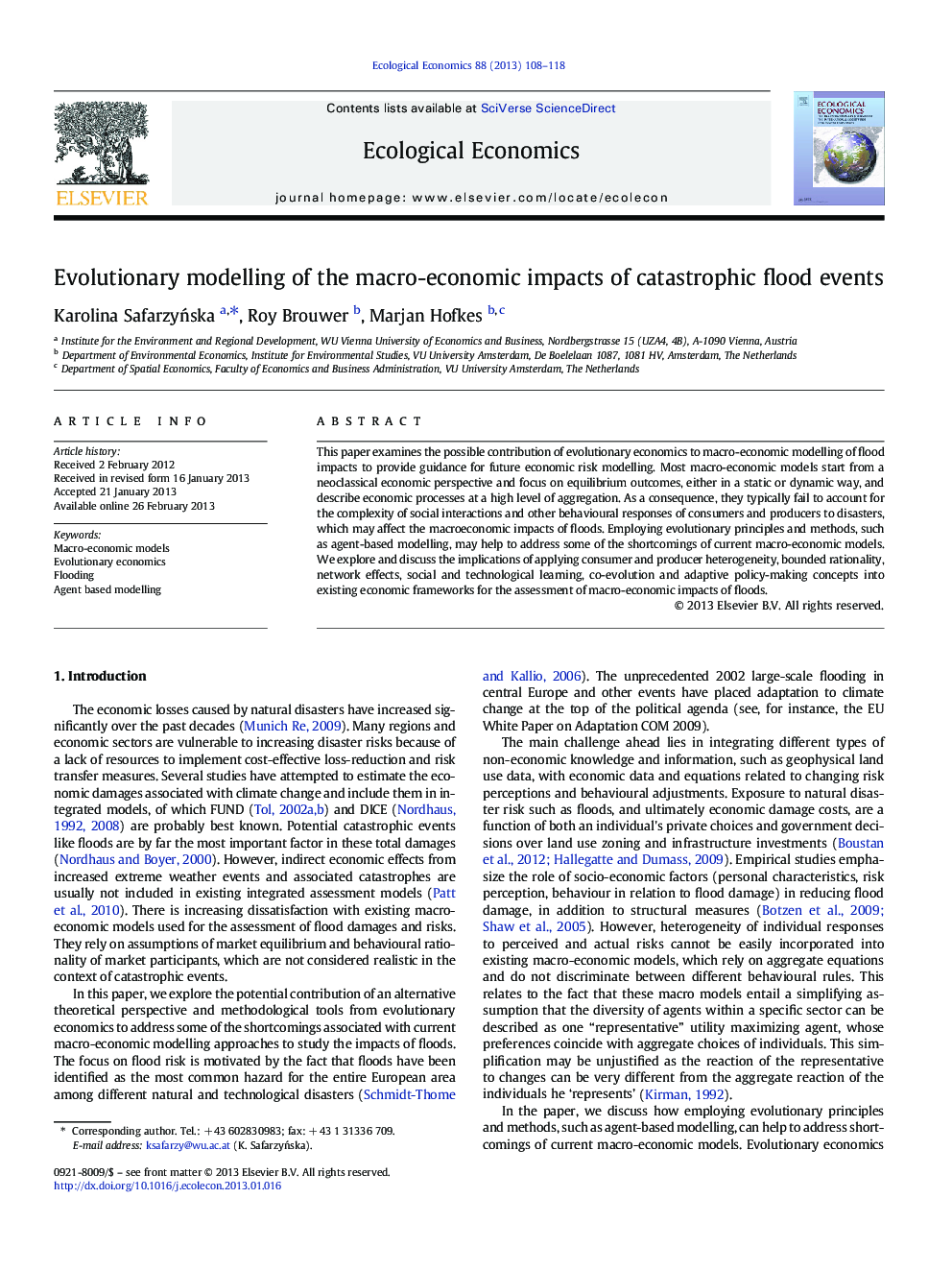| Article ID | Journal | Published Year | Pages | File Type |
|---|---|---|---|---|
| 5050160 | Ecological Economics | 2013 | 11 Pages |
This paper examines the possible contribution of evolutionary economics to macro-economic modelling of flood impacts to provide guidance for future economic risk modelling. Most macro-economic models start from a neoclassical economic perspective and focus on equilibrium outcomes, either in a static or dynamic way, and describe economic processes at a high level of aggregation. As a consequence, they typically fail to account for the complexity of social interactions and other behavioural responses of consumers and producers to disasters, which may affect the macroeconomic impacts of floods. Employing evolutionary principles and methods, such as agent-based modelling, may help to address some of the shortcomings of current macro-economic models. We explore and discuss the implications of applying consumer and producer heterogeneity, bounded rationality, network effects, social and technological learning, co-evolution and adaptive policy-making concepts into existing economic frameworks for the assessment of macro-economic impacts of floods.
⺠We examine contributions of evolutionary economics to study impacts of floods. ⺠We discuss evolutionary concepts useful to assess flood-related damages. ⺠We pay attention to heterogeneity, bounded rationality, learning, and coevolution. ⺠We suggest agent-based modeling to simulate alternative flood event scenarios.
